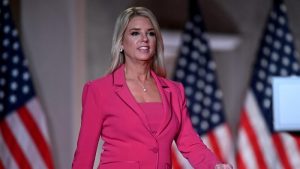Inheritance tax reforms to hit business owners and farmers
Unlock the Editor’s Digest for free
Roula Khalaf, Editor of the FT, selects her favourite stories in this weekly newsletter.
Substantial changes to the UK’s inheritance tax regime announced in Wednesday’s Budget will have a big impact on business and farm owners, as well as pension holders.
Key changes affecting these groups include a freezing of the tax-free threshold, restrictions to key reliefs and the bringing of pensions into the inheritance tax regime.
Chancellor Rachel Reeves announced she would extend a freezing of the inheritance tax-free allowance from 2028 to 2030.
The nil-rate band has been set at £325,000 since 2009, rather than rising each year in line with inflation.
A freeze on the residence nil-rate band, which provides an additional £175,000 allowance when passing on the main home to direct descendants, would also be extended for two more years, Reeves confirmed.
From April 2026, full relief will be capped on business and agriculture assets worth more than £1mn.
Assets beyond that level will receive 50 per cent relief, resulting in an effective tax rate of 20 per cent for beneficiaries.
However, the assets will also still be able to benefit from the nil-rate band and residence nil-rate band — with the government saying only the wealthiest estates would be affected.
Nevertheless, experts warned that the Budget moves would create financial and operational challenges for those wanting to pass on businesses and farms.
“The reduction of agricultural property relief and business property relief will mean sizeable IHT bills for those set to inherit estates, with a likely knock-on effect on investment in the business and, in some cases, the viability of the whole operation on transfer after death,” said James Ward, partner and head of the private client team at Kingsley Napley.
Ian Dyall, head of estate planning at wealth management firm Evelyn Partners, added: “While this is a less aggressive move than had been expected, it is still possible that modest family-owned and managed businesses could get caught up in measures intended to target the very wealthiest families.”
Reeves also announced she would remove the “loophole” of pension funds being exempt from inheritance tax, from April 2027, estimated to raise £1.46bn by 2029-30, marking a fundamental shift in how wealthy people will think about retirement planning.
The use of pensions for retirement planning became a particular concern among government officials after the lifetime allowance — which had been charged on pots over £1,073,100 — was abolished in 2023.
While the beneficiaries of inherited pensions have to pay income tax if the saver dies after their 75th birthday, if someone dies before, most lump sums paid from their pension are tax free up to a limit.
In a technical consultation published alongside Wednesday’s Budget, the government estimated that 10,500 estates would be brought into the scope of inheritance tax in 2027-28, due to the pension IHT change.
A rule allowing married couples and civil partners to pass their estate, including pensions, to their partners tax-free when they die, remains in place.
Tax experts said that the restrictions to IHT could lead to people passing on assets to younger generations earlier.
“This change is likely to trigger an increase in the number of lifetime gifts, as all but those owning the smallest value farms and businesses scramble to avoid paying inheritance tax,” said John Barnett, chair of the Chartered Institute for Taxation’s technical policy and oversight committee.
“It will also create a lot more work with formal valuations being needed for farms and businesses worth more than £1mn.”
Several advisers said the implications of the tax increases could be widespread.
“The impact on family businesses and those with significant pensions savings will be profound and it remains to be seen what the knock on impact will be on the government’s optimistic growth objectives,” said Simon Allister, head of wealth planning at LGT Wealth Management.
#Inheritance #tax #reforms #hit #business #owners #farmers





